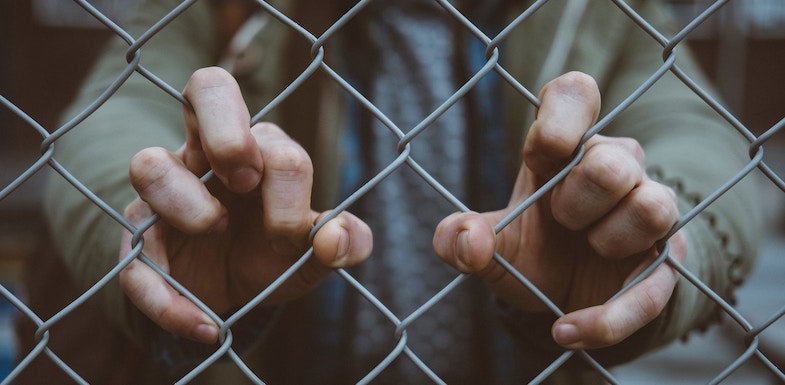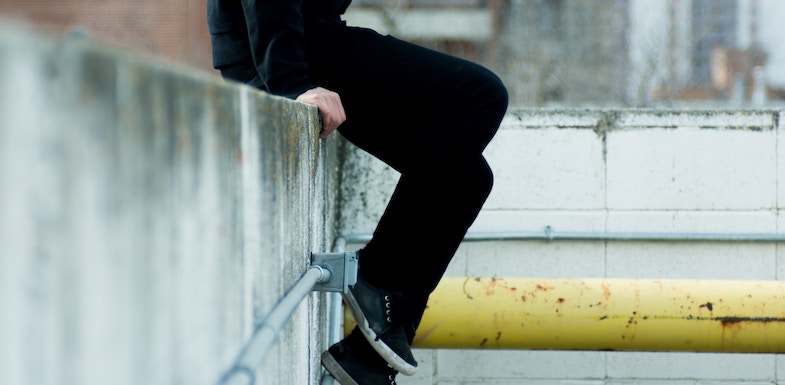While the answer to the question of how long can a juvenile be detained in Arizona may seem simple, there are a few circumstances that influence what is allowed by law. The goal of Arizona juvenile corrections is to help a juvenile offender become healthy and fully integrated back into society. Here is more information on how long can a juvenile be held in police custody.
Disclaimer: This article is not intended to be legal advice. You can contact the Arizona Legal Center today to learn more about your rights in your situation. Note that when you first contact the Arizona Legal Center, a law student (and not a practicing attorney) will handle your intake.
Who is considered a juvenile in Arizona?
In general, a juvenile in Arizona is a person who is under the age of 18 (as per ARS §8-201.13). You may sometimes hear people call juveniles “minors” or “minor children.” For some crimes, the courts may try a juvenile as an adult (see below).
Crimes committed by juveniles can impact their future. This includes applications for jobs and internships. That’s why knowing these basic definitions is so important.
How long can a juvenile be detained in Arizona?
Generally, juveniles in detention must receive a hearing within 24 hours, where a judge will determine whether to keep them in detention. Rule 23 of the Arizona Rules of Procedure for the Juvenile Court outlines requirements regarding the length of and release from detention for juveniles.
The courts will appoint a lawyer to represent the juvenile at the hearing. The court must have a good reason to keep a juvenile in detention longer than 24 hours and must file a petition stating this reason. Otherwise, it must release the juvenile after the period has elapsed. If there is no parent, guardian, or responsible person to receive the juvenile, then the court will release the juvenile to the Department of Child Safety.
Can the court hold a juvenile for longer than 24 hours?
Rule 23D outlines several cases where a judge may request detention of a juvenile for longer than 24 hours. For example, if a judge believes that a juvenile is likely to harm themselves or others, the judge can recommend detention for longer periods of time. If they deem the juvenile to be at risk outside of detention, they can also request to hold the juvenile for an extended period of time. This period of time is up to the judge.
Further, juveniles ages 15 to 18 may be charged as adults for certain crimes. Because of this, the court may detain them for longer than the 24 hours specified in Rule 23D. Under A.R.S. § 13-501, these crimes include:
- First or second degree murder
- Sexual assault
- Armed robbery
- Violent felony offense
- Felony offense by a chronic offender
Benefits of shorter detention times for juveniles
There is evidence to suggest that even in the case of conviction, long confinement of juvenile offenders does more harm than good. The researchers suggest that juvenile incarceration leads to lower rates of high school graduation and higher adult incarceration rates.
The Arizona Department of Justice also offered the following statistics of their incarcerated juvenile offenders in 2014:
- 31% suffered from a serious mental illness
- 21% were in special education
- 18% were dually adjudicated—delinquent and dependent
- 18% arrived with zero high school credits
Incarceration may only exacerbate the problems of mental illness and school delinquency. These juveniles were also more likely to be minorities in lower income household.
In short, keeping juveniles in jail for an extended period can be disruptive and damaging, creating life-long challenges that are difficult to overcome.
What juvenile intervention programs are available in Arizona?
The most common crimes committed by juveniles include:
- Shoplifting
- Assault
- Being an accomplice to someone else’s crime
- Threatening or intimidation
- Theft
Juvenile intervention programs can help rehabilitate juveniles and prevent future offenses, while helping the offender avoid incarceration. Arizona has several intervention programs.
The Governor’s Office of Youth, Faith, and Family provides funding for programs that help to keep juveniles out of jail. Among others, these programs include:
- The Arizona Youth Partnership: This is a program that serves as an alternative to detention in Mohave County
- Be Awesome: In Maricopa County, this program is delivered directly through school mentorship
- Community Bridges, Inc: This pre-arrest diversion program is statewide and includes programs that address physical, mental, and behavioral health
- Pima County Juvenile Court Center: This program helps court-referred juveniles as an alternative to incarceration
Additionally, the Juvenile Intensive Probation program holds juveniles accountable for their actions without incarceration. Juveniles are required to participate in programs mandated by the judge for their rehabilitation in a structured, supervised environment.
The Adobe Mountain School is a residential treatment center for juveniles. Programs at this facility work with juveniles on social skills, behavior, and recovery from any number of significant issues they might face (for example, abuse, sex trafficking, or substance abuse).
These resources focus on helping juveniles as both an alternative to detention and as a preventive measure for juvenile crime.
Where can I get help?
You may still have questions about how long a juvenile can be detained in Arizona. Your family members have basic rights under the law. The Arizona Legal Center (ALC) is a free legal aid service that can help you understand these rights and direct you to which steps to take next.
If you feel your family member was detained for too long or detained unlawfully, give the ALC a call for more information.
Disclaimer: The Arizona Legal Center provides free legal aid and consultations in Arizona only. We provide low-cost access to fee-for-service cases when determined appropriate by an attorney at the Center, but generally do not undertake full-scope representation.


